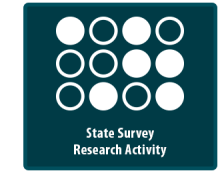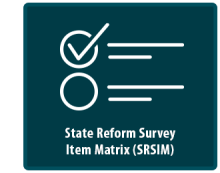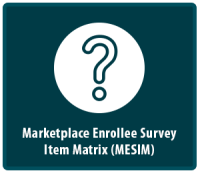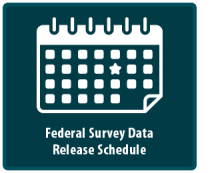State and Federal Surveys
SHADAC faculty and staff are nationally recognized experts in the collection and use of survey data with unparalleled expertise in analyzing federal survey data, specifically. SHADAC offers direct technical support to states interested in primary data collection. Most notably, we have worked collaboratively with the State of Minnesota to conduct the Minnesota Health Access (MNHA) since the 1990s. In addition, we support clients in using federal survey data to address policy questions, monitor their uninsured population, support evaluation, and fill other critical information gaps.
Related SHADAC work:
Click on any title below to learn more about the project or expertise.
Minnesota Health Access (MNHA) Survey
The Minnesota Health Access (MNHA) Survey, conducted collaboratively between SHADAC and the Minnesota Department of Health (MDH), is a large-scale telephone and mail survey that collects information on the health of Minnesotans and how they access health insurance and health care services. The survey is conducted every two years and results are presented in a follow-up report from MDH as well as other products.
On-Demand Analysis of Federal Survey Data
On a task-by-task basis, SHADAC conducts quantitative analyses for the Medicaid and CHIP Payment and Access Commission (MACPAC) using a broad array of federal survey data, including the American Community Survey (ACS), National Ambulatory Medical Care Survey (NAMCS), National Electronic Health Records Survey (NEHRS), National Health Interview Survey (NHIS), National Survey of Children's Health (NSCH), National Survey on Drug Use and Health (NSDUH), Medical Expenditure Panel Survey (MEPS), Pregnancy Risk Assessment Monitoring System (PRAMS), and the Survey of Income and Program Participation (SIPP), among others. As part of this work, SHADAC assists MACPAC in scaling work to meet their information needs, producing sound estimates, and developing documentation that supports the reproducibility of results over time. Key SHADAC staff execute diverse statistical methods ranging from simple descriptive statistics and t-tests to multivariate logistic regression and maintain Special Sworn Status to facilitate access and use of restricted data at the Minnesota Census Research Data Center (MnRDC). Our work has contributed to a wide range of products, including: Federal Survey Sample Size Analysis: Disability, Language, and Sexual Orientation and Gender Identity (report), MACStats: Medicaid and CHIP Data Book 2023, Access in Brief: Experiences of Lesbian, Gay, Bisexual, and Transgender Medicaid Beneficiaries with Accessing Medical and Behavioral Health Care, and more.
Monitoring Federal Surveys and Producing Resources for Analysts
Monitoring and Commenting on Survey Changes
SHADAC researchers consistently monitor federal surveys for any updates, changes, deletions, or additions to federal survey question content and data collection methods. While tracking proposed updates and adjustments to surveys, researchers often respond to requests for comment and formulate direct responses to these proposed changes. Recent examples of this work include our response to Proposed Changes to Sexual Orientation Gender Identity (SOGI) questions on the American Community Survey (ACS), our response to 2025 American Community Survey health insurance coverage questions, and our response to proposed Revisions to Federal Standards for Collecting Race/Ethnicity Data by the Office of Management and Budget (OMB).
Annual Fall Data Release with the U.S. Census Bureau
Each September, SHADAC researchers monitor and report on the release of annual health insurance coverage estimates from two federal surveys conducted by the U.S. Census Bureau: the American Community Survey (ACS) and the Current Population Survey (CPS). Our team publishes a variety of products from this data release, including informative blogs, interactive maps, and infographics that convey key takeaways regarding year-over-year changes in coverage at national, state, and county levels. Additionally, SHADAC hosts a webinar with experts from the U.S. Census Bureau that offers state analysts and policymakers a chance to learn more about trends in insurance coverage, how and where to access estimates directly, and interact with Census Bureau data experts directly. See some of our latest products on the 2022 ACS here and the 2022 CPS Annual Social and Economic Supplement (ASEC) here.
Comparing Health Insurance Measurement Error (CHIME) Study
The CHIME (Comparing Health Insurance Measurement Error) study is an experimental reverse-record check study that compared survey responses to administrative insurance records to understand the magnitude, direction, and patterns of misreporting in two important national surveys conducted by the U.S. Census Bureau. Half of the sample was asked the health insurance module from the recently redesigned Current Population Survey Annual Social and Economic Supplement (CPS), and the other half received the health insurance module from the American Community Survey (ACS). CHIME provides the first post-health reform assessment of the validity of two national survey instruments in capturing health insurance coverage and its sources. CHIME also serves as the first baseline for validation across a range of public and private coverage types in the CPS redesign as well as the first validation study for the ACS. Read more about this study here.
Other CHIME products include the following journal articles:
- Categorization of Health Insurance Coverage Type from Survey Questions after Health Reform: The Case of the Current Population Survey (2024)
- Using Enrollment Records to Evaluate Self-Reports of Monthly Coverage in the Redesigned Current Population Survey Health Insurance Module (2024)
- Factors Associated with Accurate Reporting of Public and Private Health Insurance Type (2021)
- Assessing the Accuracy of Survey Reports of Health Insurance Coverage Using Enrollment Data (2019)
- Validation of Two Federal Health Insurance Survey Modules After Affordable Care Act Implementation (2019)
Federal Survey Resources & Technical Assistance
SHADAC offers technical assistance for states that want to apply findings from the federal surveys of health insurance coverage to monitor their uninsured populations. These surveys include:
- American Community Survey (ACS)
- Current Population Survey - Annual Social and Economic Supplement (CPS)
- Behavioral Risk Factor Surveillance System (BRFSS)
- National Health Interview Survey (NHIS)
- Household Pulse Survey (HPS)
- National Survey of Children's Health (NSCH)
- National Survey on Drug Use and Health (NSDUH)
- Pregnancy Risk Assessment Monitoring System (PRAMS)
- Survey of Income and Program Participation (SIPP)
- National Electronic Health Records Survey (NEHRS)
- National Immunization Survey (NIS)
- Youth Risk Behavior Surveillance System (YRBSS)
- U.S. Transgender Survey (USTS)
- Health and Retirement Study (HRS)
- National Ambulatory Medical Care Survey (NAMCS)
- Nationwide Adult Medicaid (NAM) Consumer Assessment of Healthcare Providers and Systems (CAHPS)
- National Survey of Substance Abuse Treatment Services (N-SSATS)
- National Mental Health Services Survey (N-MHSS)
- Medicare Beneficiary Survey (MBS)
- National Health and Nutrition Examination Survey (NHANES)
Methodological Resources
SHADAC maintains a variety of resources to guide state and federal analysts in the use of survey data. These include resources that we update regularly and products targeted at new or emerging issues in survey data and analysis. Examples include:
- Webinar: What the Growing Medicaid Undercount Means for Data Users and Policymakers
- Tracking the Medicaid Undercount in the 2021 ACS Coverage Data
- Changing Population Estimates: Implications for Data Users
- Race/Ethnicity Data in CMS Medicaid (T-MSIS) Analytic Files: 2021 Data Assessment
- FPG vs. FPL: What's the Difference?
Examples of this technical assistance include issue briefs, technical briefs, conference calls, and one-on-one assistance to inquiries. Inquiries are welcome to shadac@umn.edu or 612-624-4802.
State Survey Resources and Technical Assistance
SHADAC maintains and produces a variety of resources to help analysts conduct research and understand the results. This technical assistance agenda aims to:
| • | Facilitate the sharing of information and expertise among states and provide opportunities for state analysts to interact with federal survey research and design experts. |
| • | Help policy-makers understand the unique characteristics of the uninsured and conceptualize state programs and interventions that will increase access to care. |
| • | Provide assistance to states using any of SHADAC’s survey tools (the State Reform Survey Item Matrix (SRSIM); the Marketplace Enrollee Survey Item Matrix (MESIM); and the Coordinated State Coverage Survey (CSCS). |
| • | Provide data collection technical assistance to states seeking information on their uninsured populations. |




Other State Survey Resources
Coordinated State Coverage Survey (CSCS)
State Reform Survey Workgroup (SRSW)
